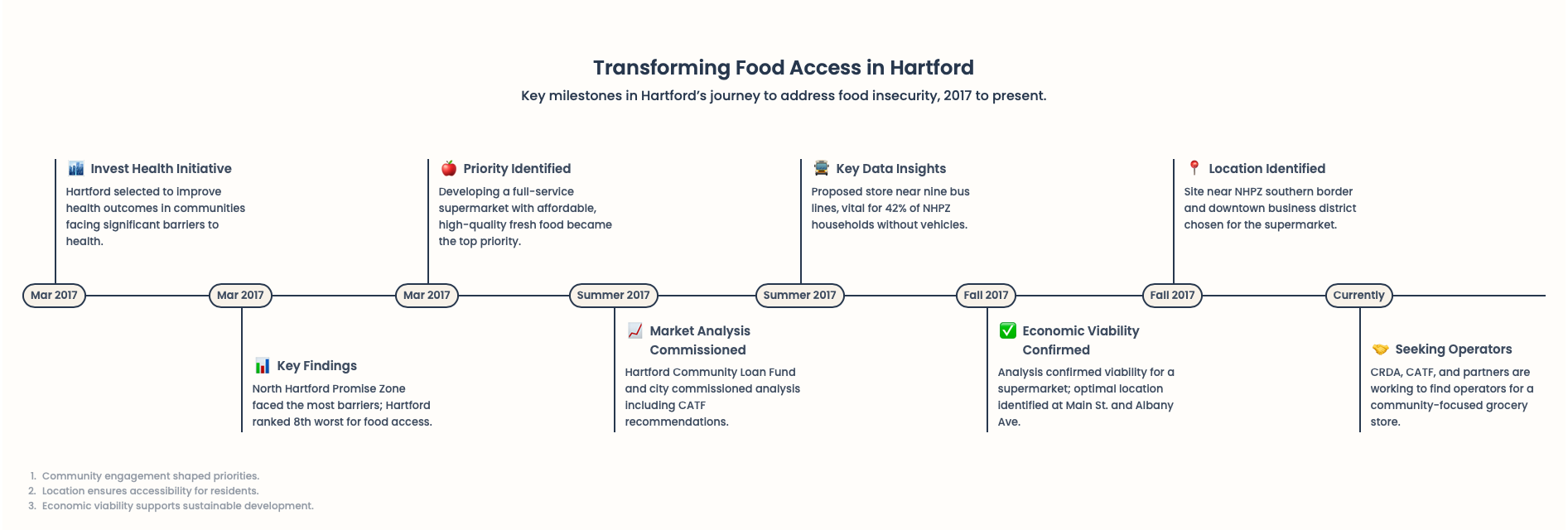The Healthy Hartford Hub is a transformative community-led initiative designed to address systemic food and health disparities in Hartford—particularly in the North Hartford Promise Zone.
Our Origin
The concept for the Healthy Hartford Hub was born out of the 2017 Retail Food Market Study and the groundbreaking work of the Invest Health Hartford team. Working in partnership with the Hartford Community Loan Fund and the Office of former Mayor Luke Bronin, the team envisioned a comprehensive solution to improve both food access and health outcomes in North Hartford.
With early-stage support from the Hartford Foundation for Public Giving in March 2018, the Hub entered its initial development phase, laying the groundwork for what will become a dynamic and multi-functional community space.
Our Mission
The Healthy Hartford Hub is centered around two core objectives:
- Improve Access to Healthy, Affordable Food
We aim to eliminate food deserts and ensure every resident, particularly in the North Hartford Promise Zone, has access to high-quality, affordable, and nutritious food.
- Improve Health Outcomes for City Residents
By integrating health services with food access, the Hub supports a holistic approach to wellness for Hartford residents.
Our Vision: A Mixed-Use Development for Community Wellness
Located in the Main Albany Target Area, the Healthy Hartford Hub will be a mixed-use development featuring:
- A full-service supermarket on a currently vacant, city-owned parcel
- A parking structure to accommodate visitors and shoppers
- A variety of health-promoting services housed in adjacent buildings, including:
- A pharmacy
- A health clinic
- A wellness studio
- A community teaching kitchen
- A Healthy Café
Inspired by Innovation
The Healthy Hartford Hub draws inspiration from successful models like the Refresh Project in New Orleans in New Orleans and the Brockton Health Hub in Massachusetts—supermarket-anchored health hubs designed to drive economic development while improving the health and wellness of residents.
Why It Matters
North Hartford faces some of the highest rates of diet-related illness in the state. By addressing access to both healthy food and access to health promoting services in one central, community-centered location, the Healthy Hartford Hub stands as a beacon of health and community empowerment in Hartford.

